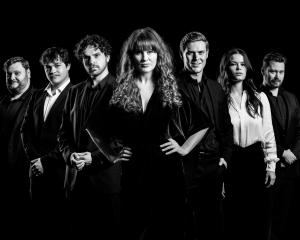It will be the first time the biennial conference on marine mammals has been held in Australasia.
Associate Prof Liz Slooten, of the university's zoology department, who is chairing the organising committee, said preliminary workshops for the marine mammology conference would be held on December 7 and 8, followed by the conference from December 9-13.
Organisers from the United States have booked out five or six inner-city hotels, as well as Cumberland Hall.
More accommodation within university colleges, empty over summer, was also being arranged.
The registration income alone was about $350,000, of which about $150,000 would go to the University of Otago for catering and venue hire.
Prof Slooten said the idea of New Zealand hosting the global conference was mooted at the 2007 event in Cape Town.
She and others from New Zealand put in a bid to the US-based organisers, who accepted it over a rival bid from Australia.
''It was quite simple. We just put together a three-page proposal. A vote was held and, `nek minute' ... we're hosting the conference.''
All delegates would be in Dunedin for at least a week and many would spend closer to two or three weeks in and around the city, Prof Slooten said.
Accommodation costs alone would be substantial, she said.
''If you think about 1200 people and the cost of an average hotel room for a night, then consider the amount of time they'll be here. It really will be millions, actually.''
Cumberland Hall booked out for a week ''certainly won't hurt anybody'' and, in addition, thousands would be spent on food, transport, tourism activities and other associated expenses, she said.
About 2000 members of the Society for Marine Mammalogy lived in the US and there were a few hundred others scattered around the world.
For that reason, almost all conferences were held in the US.
The 2015 event would be in San Francisco, and the 2017 conference in Mexico, Prof Slooten said.
''They tend to find locations well in advance.''
Delegates would be world leaders in their field, and many were looking forward to seeing New Zealand's wildlife.
They would likely tour Dunedin beaches and the Otago Peninsula to see the New Zealand sea lion and travel to Akaroa for Hector's dolphin sightings.
''They're the two marine mammals only found in New Zealand and loads of people will want to see them.
''I think a lot will go on our local wildlife tours and rent cars to drive out to beaches like Sandfly Bay.''
Whale Watch Kaikoura was a sponsor of the event and had given organisers 100 free tickets, so many delegates would travel to see the whales, she said.
Fiordland would also be a popular destination. Using a standard formula for economic impact per delegate, organisers of the recent Global Botanic Gardens Congress held in Dunedin estimated that conference, with 347 delegates, would have injected more than $1.5 million into the city.
Advertisement













